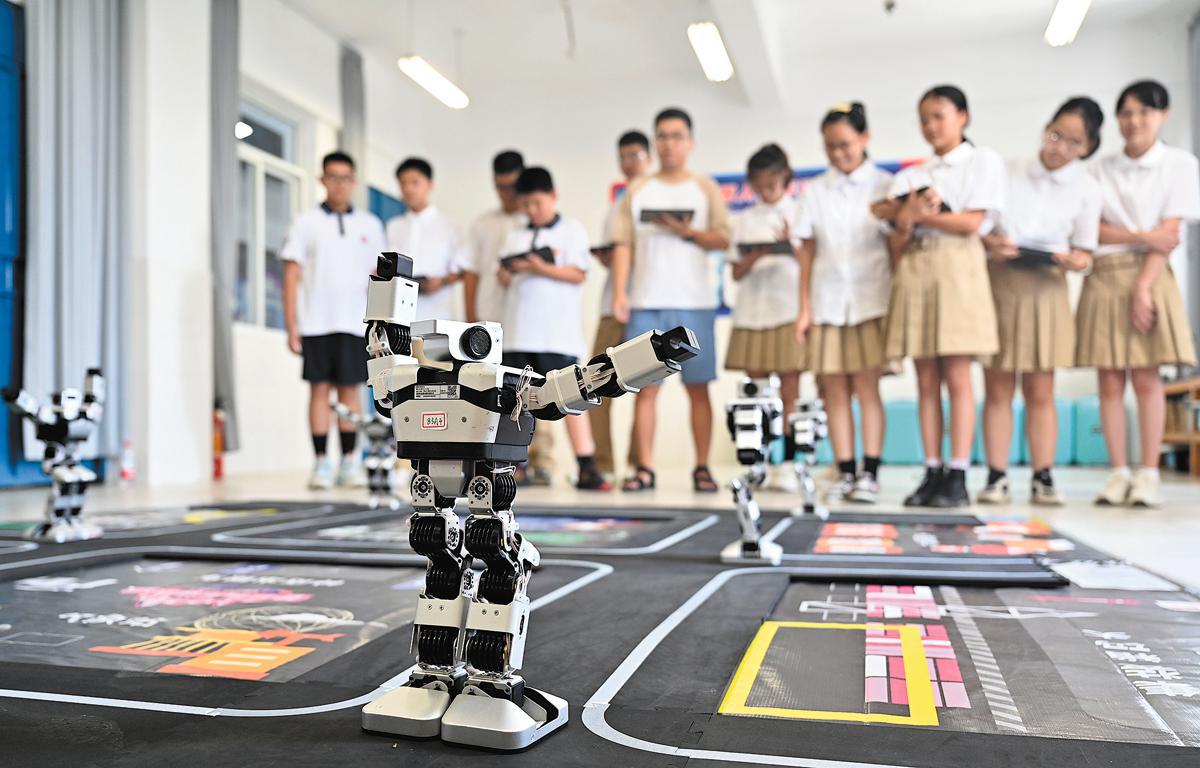

The guideline urged that the development of AI teaching resources should be tailored to the needs of students and make AI education ubiquitous.
Mohamed Ally, a professor at Athabasca University in Canada, said AI can meet individual learners' needs and provide one-to-one tutoring for students, as well as facilitate lifelong learning.
Countries worldwide are trying to find ways to use AI more flexibly in education, aiming to deliver education to students in remote areas and teach people the skills needed to build successful careers in the 21st century, Ally noted.
"China has become a leader in applying AI in education and training by developing smart learning systems and intensifying AI research," he said.
Last year, the ministry released 50 application scenarios integrating AI with higher education, including askpku.com, an AI-assisted education platform exclusively for Peking University educators and students to improve teaching and learning efficiency.
OpenEdu4Fin, a smart finance education platform based on a large language model designed by Dongbei University of Finance and Economics in Dalian, Liaoning province, is also on the list.
Similarly, a smart crop production case launched by Northwest Agriculture and Forestry University in Yangling, Shaanxi province, aims to enhance students' practical skills and innovative abilities in upgrading smart agriculture.
Wang Xuenan, deputy director at the Digital Education Research Institute of the China National Academy of Educational Sciences, said AI-driven education increasingly emphasizes advanced skills such as critical thinking, problem-solving and recognizing AI-generated misinformation.
"AI enables a shift from uniform education to one that adapts to each student, focusing on individual development, potential and addressing weaknesses," she said.
Zheng Qinghua, president of Tongji University, said generative AI technology has become an essential tool for obtaining and disseminating knowledge.
Various models developed by internet companies and universities have been applied to educational activities. The majority of college students in China have used the technology, including Ernie Bot, an AI chatbot developed by Baidu Inc, he said.
These tools, with DeepSeek as a leading global example, can write essays and solve science problems, helping students with assignments and tests.
Generative AI also opens new possibilities for personalized instruction, said Wang Huashu, a professor at the Graduate School of Translation and Interpretation at Beijing Foreign Studies University.
Teachers can use AI to create realistic dialogue scenarios for immersive speaking practice, while students benefit from instant feedback on oral and written language skills, enhancing their communication abilities, Wang said.
"AI is not a threat but an opportunity to enhance educational quality and efficiency," he said. "By embracing AI while preserving the essence of education, we can cultivate a new generation of foreign language professionals who are both technically proficient and deeply humanistic."
Higher education institutions need to break through traditional education models and explore the application of AI in teaching, assessment and management, he added.